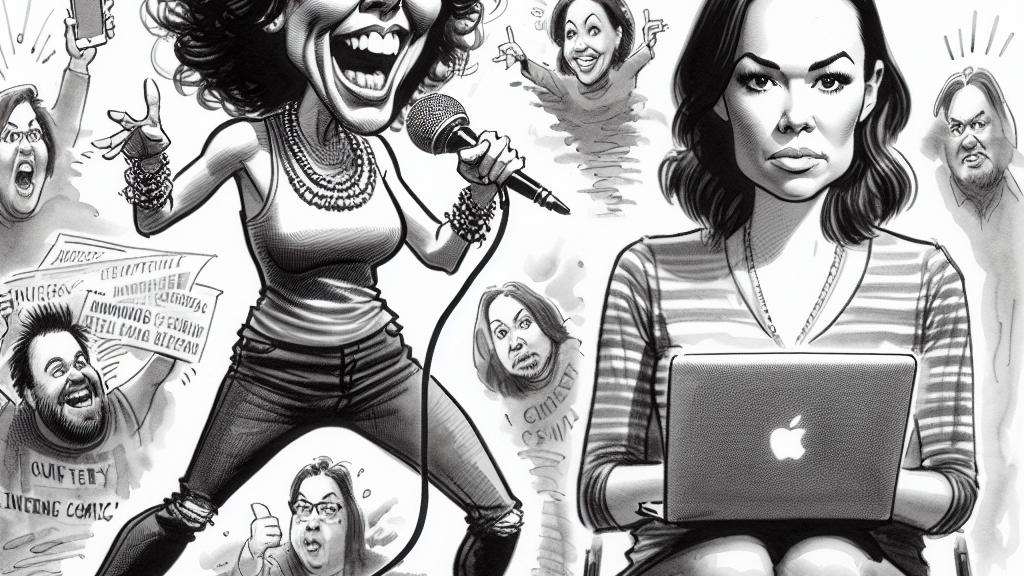Fuwachan vs Yasuko: The Comedy Showdown that Shocked Japan!
Overview
- Explore the complex rivalry between comedians Fuwachan and Yasuko in the contemporary Japanese comedy scene.
- Examine how their different comedic styles reflect shifting cultural values and generational expectations.
- Analyze the profound impact of social media on their public personas and the evolving nature of humor.

Fuwachan's Emergence and Unique Style
Fuwachan's journey into comedy began around seven years ago with the internet program 'A Masso no Geranichobi,' where her unconventional style captivated viewers. Fuwachan, known for her candid and energetic performances, harnessed the power of social media to grow her audience, quickly transforming from an internet personality into a celebrated YouTuber and comedian. Her playful, sometimes edgy humor resonates with younger generations, signaling a departure from traditional comedic norms. As her television presence waned, speculation arose regarding her feelings toward Yasuko, whose ascent in the comedy world raised questions about jealousy and competition, illuminating the pressures comedians face in an industry driven by public opinion.
The Divergence of Comedic Styles: Fuwachan vs Yasuko
The contrast between Fuwachan's audacious humor and Yasuko's traditional comedic approach highlights differing cultural narratives prevalent in Japan today. Yasuko's success in the comedic arena largely stems from her ability to blend established comedic frameworks with relatable storytelling, making her a staple on popular television shows such as 'Kōjō Iinkai.' Her performances are characterized by a sharp understanding of audience expectations, consistently delivering humor that aligns with mainstream sensibilities. Fuwachan, however, embraces a more provocative and spontaneous style, which not only appeals to the Gen Z audience but also challenges the conventional essence of comedy itself. This divergence raises broader discussions about the transformation of comedic expression and the significance of audience expectations as cultural dynamics evolve.
Navigating Fame in a Social Media-Driven Landscape
The recent uproar surrounding Fuwachan's comments about Yasuko opens a window into the intricate relationship between contemporary humor and social media dynamics. Following her controversial remarks, discussions erupted regarding the boundaries of comedic expression in an era where public figures are relentlessly scrutinized. Social media serves as a double-edged sword—while it offers platforms for comedians to express themselves creatively, it also amplifies the potential backlash faced for any perceived misstep. Critics argue that female comedians like Fuwachan and Yasuko endure increased scrutiny compared to their male counterparts, posing challenges in maintaining their comedic identities while adhering to societal expectations. This situation underscores the necessity for comedians to navigate their craft with care, recognizing that humor can be both liberating and treacherous within the volatile realm of public perception.

Loading...